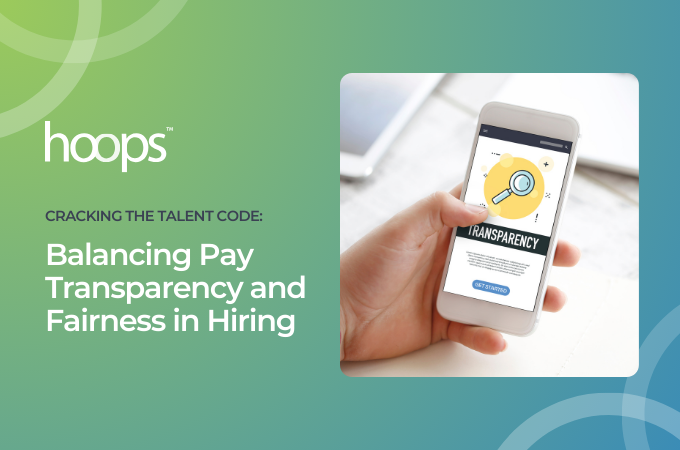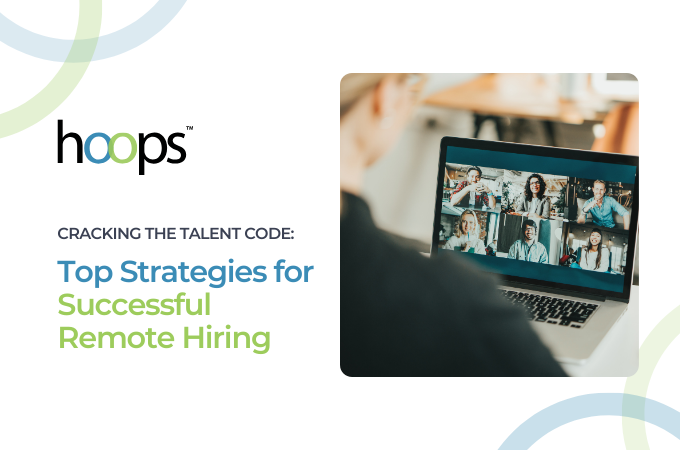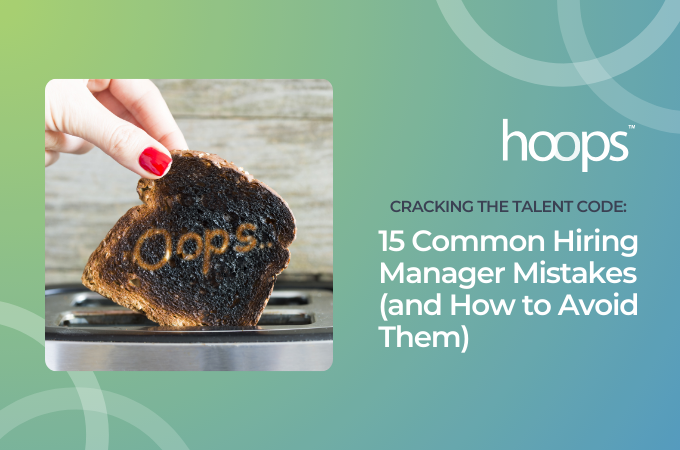Feeling unsure about which questions to ask in an interview to truly evaluate your candidates? In this article, we’ll share the most effective interview questions to help you uncover a candidate’s true potential, while also improving the overall candidate experience.
By asking the right questions, you’ll gain critical insights into their abilities, cultural fit, and how they’ll contribute to your team. Whether you’re an experienced recruiter, business owner, or hiring manager, these questions will guide you in making better hiring decisions.
Don’t leave hiring to chance. With the right questions, you’ll be equipped to confidently assess candidates and find the perfect fit for your team.
The Importance of Effective Interview Questions
Effective interview questions are crucial for identifying whether a candidate is truly the right fit for your business. Rather than relying on a resume alone, the right questions give you deeper insight into a candidate's abilities, work style, and how they’ll adapt to challenges within your team.
According to CareerBuilder, about 75% of employers have admitted hiring the wrong person for a position, often leading to costly mistakes (read more in The True Cost of a Bad Hire). Without thoughtful questions, decisions are often based on gut feeling or superficial impressions, which can result in more missteps. Crafting targeted, meaningful interview questions is essential for making informed decisions and ultimately hiring the best person for the job.
Types of Interview Questions
When it comes to interviewing, there isn’t a one-size-fits-all approach. You’ll need to use different types of questions to assess various aspects of a candidate’s abilities and personality. Here’s a breakdown of the most common types of interview questions:
- Behavioral Interview Questions
- Situational Interview Questions
- Technical Interview Questions
- Competency-Based Interview Questions
Let’s dive into each of these in more detail.
Behavioral Interview Questions
Behavioral interview questions are essential for understanding how a candidate has responded to specific situations in the past. This approach is grounded in the idea that past behavior is one of the best predictors of future performance—especially in complex or high-pressure scenarios. By asking candidates to reflect on their past experiences, you can gain insights into how they will handle challenges within your team and organization.
The goal is to uncover real-world evidence of the candidate’s abilities and behaviors, making it a more reliable indicator of how they might act in similar situations in your company. They can also be a great opportunity to evaluate a candidate's emotional intelligence, adaptability, and communication skills.
Best Practices for Crafting Effective Technical Questions
- Ask for Specific Examples: Always encourage candidates to provide specific, concrete examples of past behavior, rather than asking general or hypothetical questions. Phrasing like “Tell me about a time when…” or “Give me an example of how…” gives candidates the chance to describe how they’ve successfully handled situations in the past. Be wary of vague or overly general answers that don’t provide insight into their actual experience.
- Focus on Key Competencies: When crafting behavioral questions, align them with the competencies that are most critical to the role—such as problem-solving, conflict resolution, collaboration, and leadership. This helps you assess whether a candidate’s previous experiences directly relate to the demands of the position. For example a question about problem-solving could be:
- Dig Deeper with Follow-Up Questions: Behavioral questions often require follow-up to fully understand the candidate's actions, thought processes, and results. Questions like, “What was the outcome of that situation?” or “How did you feel about that experience?” will help you assess whether the candidate is self-aware, can take accountability, and is able to reflect on their actions to improve.
- Look for Evidence of Growth: Ask candidates to describe not just how they handled a situation, but how they learned and grew from it. For example, “Tell me about a time you made a mistake. How did you handle it and what did you learn?” This shows how they evolve based on their experiences, which is a valuable trait for any employee.
Example Questions:
- Tell me about a time you had to make a decision with incomplete information. How did you proceed and what were the results?
- Tell me about a time when you had to adapt to a major change at work. How did you handle it and how did it impact your team?
💡 Pro Tip: Behavioral questions are far more reliable than situational ones. They provide concrete evidence of how a candidate has actually performed, helping you avoid answers based on "what they think they might do."
Situational Interview Questions
Situational questions are used to assess how candidates would approach hypothetical situations they might face in the role. These questions are typically designed to evaluate a candidate’s problem-solving, creativity, and decision-making skills. While situational questions can give insight into how candidates might react in specific situations, they are often less reliable than behavioral questions because candidates can craft ideal answers.
Situational questions are helpful for evaluating how candidates think on their feet and whether they can apply critical thinking to complex problems.
Best Practices for Crafting Effective Situational Questions
- Use Realistic Scenarios: To make situational questions as relevant as possible, ensure the scenarios reflect real-world challenges that the candidate might face in the role. This makes the question feel more grounded in the day-to-day work they will encounter, allowing you to evaluate their practical problem-solving skills.
- Focus on Process Over Outcome: When asking situational questions, ask candidates to walk you through the thought process they would use to resolve the issue, rather than focusing solely on the ideal outcome. This gives you insight into how they think critically, prioritize tasks, and make decisions under pressure.
- Encourage Problem-Solving and Creativity: Situational questions are a great opportunity to gauge how candidates will think outside the box. Encourage them to talk through multiple approaches or solutions, especially for complex problems. This will help you understand their ability to approach a challenge from different angles and select the best course of action.
- Use Them Sparingly: Since situational questions are less predictive of future behavior, they should be used sparingly and in combination with behavioral questions to get a fuller picture of the candidate. Situational questions are excellent for assessing quick-thinking skills and creative problem-solving, but should not replace behavioral assessments of past performance.
Example Questions:
- You are in the middle of a critical project when your manager asks you to take on another high-priority task. How would you prioritize and manage both?
- Imagine you’re tasked with leading a project that requires input from multiple departments, but one department is slow to respond. How would you ensure the project stays on track?
Technical Interview Questions
For roles that require specialized skills, technical interview questions are not just important—they’re essential. These questions give you insight into whether a candidate can perform the specific tasks required for the job, whether that involves software proficiency, industry-specific knowledge, or technical expertise. However, it's important to remember that technical skills alone don’t make a successful hire. Soft skills such as communication, problem-solving, and adaptability are often just as critical and harder to develop after hiring.
When conducting technical interviews, the goal is to dig deeper into a candidate’s practical knowledge, rather than focusing solely on theoretical or abstract understanding. The best technical questions assess how a candidate thinks, how they approach problems, and how they apply their knowledge in real-world scenarios. Equally important is their ability to communicate technical solutions clearly—an invaluable skill in any role that requires team collaboration.
Best Practices for Crafting Effective Technical Questions
- Avoid Leading the Witness: The key to effective technical interviews is asking open-ended questions without guiding candidates to a specific answer. Leading questions (like "Do you know how to use macros in Excel?") prompt rehearsed answers and limit insight into their actual skills. Instead, ask them to describe their experience, such as: "What’s your approach when a system error impacts team productivity?" This gives candidates a chance to showcase their problem-solving abilities and reduces the risk of surface-level responses. Avoid yes/no questions that don’t encourage depth or thought.
- Keep it Relevant and Clear: Tailor your questions to the specific tasks the candidate will face in the role. This ensures the questions are practical and aligned with the job's real demands. Clarity in the way you ask questions is essential—make sure your questions are specific enough to assess actual capabilities, and not so vague that they leave room for misinterpretation. For example, rather than asking, "What’s your experience with databases?", ask, “How would you optimize a slow database query?”
- Set Realistic Expectations for Skills: Not every candidate will possess every skill listed in the job description, and that’s okay. Focus on must-have skills and those that are essential for immediate success in the role, but also consider the candidate’s ability to learn. In some roles, it’s more important to prioritize technical depth in a few key areas over breadth in many. A candidate’s ability to adapt and learn is just as valuable as existing knowledge and should be a key part of your assessment.
- Prioritize Problem-Solving and Application: Technical knowledge is important, but the ability to apply that knowledge is what separates good candidates from great ones. Ask candidates to explain how they approach real-world problems, rather than simply listing knowledge. For example, instead of asking, “Do you know how to fix a bug?”, ask, “Tell me about a time you identified and resolved a bug under tight deadlines. What was your approach?” This reveals their ability to think critically, handle pressure, and translate their skills into action.
💡 Pro Tip: One of the most effective ways to identify superficial responses is to ask follow-up questions that require candidates to explain how they solved the problem, not just what the solution was. This helps you determine whether the candidate is truly proficient or simply providing vague answers. Pay attention to their depth of explanation—genuine expertise comes with clear, logical reasoning.
Example Questions:
- What experience do you have working with cloud computing platforms, and what steps do you take to optimize cloud resources?
- Tell me about a time when you had to integrate different systems. How did you handle it?
Competency-Based Interview Questions
Competency-based interview questions assess how well a candidate’s abilities align with the key competencies required for the role. These questions focus on qualities such as leadership, collaboration, time management, and emotional intelligence—skills that are often difficult to evaluate through a resume alone.
The goal is to gauge whether a candidate has demonstrated these competencies in the past and how they can apply them to future challenges in your organization.
Best Practices for Crafting Effective Competency-Based Questions
- Focus on Core Competencies: Identify the key competencies that are essential for success in the role. For example, if you're hiring for a leadership role, focus on decision-making, conflict resolution, and team management. For a customer service position, communication, empathy, and problem-solving will be crucial.
- Ask for Specific Examples: Ask candidates to provide examples from their previous work experience to demonstrate how they’ve applied these competencies. Instead of asking, “Are you a good communicator?”, ask, “Tell me about a time you had to explain a complex issue to a customer. How did you approach it?” This ensures you get concrete examples of their skills in action.
- Look for Growth and Learning: Competency-based questions should also highlight how a candidate has grown or developed over time. Ask them to describe how they’ve improved their skills in certain areas, or how they’ve learned from their past experiences. For example, “Describe a time when you had to step into a leadership role unexpectedly. What did you learn from the experience?”
- Balance Soft and Hard Skills: While technical expertise is important, soft skills like empathy, teamwork, and leadership often differentiate top performers from the rest. Competency-based questions give you the opportunity to assess these soft skills, ensuring you hire someone who will not only succeed in the technical aspects of the role but also thrive within your company culture.
Example Questions:
- Tell me about a time you had to lead a team through a challenging project. What was the situation, and what steps did you take to guide the team to success?
- How do you manage multiple tasks with competing priorities? Can you give an example of a time when you had to juggle several projects at once?
💡 Pro Tip: Use competency-based questions to measure key soft skills that are often harder to assess through resumes alone, but are just as important for success in a role.
10 Telling Interview Questions to Assess Candidates’ True Potential
One of the most common and challenging questions we hear is, “How can we tell if a candidate is a true culture fit and not just saying what we want to hear?” While the technical qualifications and industry-specific requirements are important, the key to identifying a true culture add lies in asking the right questions. To move past surface-level answers and uncover a candidate’s character, work ethic, and values, you need to dig deeper. Here’s a list of 10 insightful interview questions to help you assess whether a candidate has what it takes to thrive in your organization—and avoid making a bad or toxic hire.
- "Can you describe a time when you went above and beyond to help a colleague? What motivated you and what did you learn?"
Why: This question assesses the candidate’s work ethic, motivation, and willingness to go the extra mile for others. It helps you understand what drives them to take initiative. (Red flag: If they only mention actions that benefited them or were for recognition, rather than selflessly helping others.) - "Can you tell me about a situation in which you depended on someone else to get the job done?"
Why: This demonstrates teamwork and the ability to relinquish control when necessary. Look for candidates who express gratitude and collaboration—avoid those who downplay the contributions of their coworkers or managers. - "What’s the biggest mistake you’ve made at work, and what could you have done better?"
Why: This question identifies candidates who can admit their mistakes, take responsibility, and demonstrate a growth mindset by learning from the experience. - "Describe a time when you disagreed with a decision at work. How did you approach it?"
Why: Tests conflict resolution skills, maturity, and how the candidate handles difficult conversations. (Red flag: Blame-shifting and lack of ownership indicate poor maturity and accountability.) - "At what age did you start working? This can include volunteering, paid gigs, or any job."
Why: Ideally, you want the candidate to mention starting at 16 or younger. Early work experience often develop strong work ethic and important life skills like time management, teamwork, and problem-solving. - "Tell me about a time you received feedback. How did you respond, and what changes did you make?"
Why: Assesses emotional intelligence, accountability, and the ability to accept and act on feedback to drive growth and improvement. - "Walk me through your ideal workday. What does it look like?"
Why: Reveals the candidate’s work priorities and work style. Are they seeking flexibility, ease, or something that may not align with your company culture? - "If you could change 3-5 things about your current (or previous) role, what would they be and why?"
Why: It’s normal for candidates to want to change aspects of their job (they’re looking for a new opportunity after all!). However, look for responses that show growth, self-awareness, and a desire for improvement, not blame or complaints. - "What is one area where you need the most professional development?"
Why: Everyone has room for growth. Look for authenticity and avoid responses that sound like they’re trying to overcompensate. Confident professionals acknowledge areas for improvement and see growth as an ongoing process. - "Is there anything you were hoping to share today that hasn't come up yet? Or a question you were hoping I would ask?"
Why: This allows candidates to open up about additional motivations, concerns, or values that might not have been addressed during the interview. It provides valuable insight into what they prioritize or care about.
What NOT to Ask in an Interview
It’s equally important to know what NOT to ask during an interview to avoid legal issues and respect the candidate’s privacy. Stay focused on questions that directly relate to the candidate’s ability to perform the job. Personal questions not only risk alienating top talent, but they can also lead to legal trouble.
Avoid questions related to:
- Age, race, gender, religion, or marital status
- Disabilities or medical history
- Family and pregnancy
- Personal beliefs or political opinions
- Salary history (many states have made this illegal)
💡Did you Know?: According to a Harris Poll survey, 53% of US candidates say that inappropriate interview questions are their top deal-breaker (and understandably so!).
Conclusion: Choosing the Right Interview Questions for Your Hiring Process
Asking the right interview questions is key to making confident, informed hiring decisions. By using a balanced mix of behavioral, situational, technical, and competency-based questions, you can gain a well-rounded understanding of a candidate’s abilities, personality, and potential fit for your team.
The goal is to look beyond the resume and truly assess how candidates will perform on the job and align with your team’s culture. With the right questions, you can avoid costly hiring mistakes and more confidently select the best talent for your business.
Need help crafting the best interview questions for your team? Hoops is here to guide you, ensuring you ask the right questions to uncover top talent and make confident hiring decisions.
Simplify hiring. Amplify growth. Visit hoopshr.com or call 877-262-7358 to get started!
#yourbesthire







